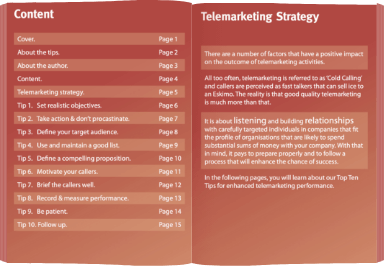Business development is essential for every business whether it be Kellogg’s or Ken’s Fruit shop. But where do you start if you want lead generation for your small business? Below are our 20 business development tips to get you more business. These are tips for every business owner to implement.
1. Define growth targets annually and review them monthly.
It is quite difficult to achieve your goals if you are unsure of what they are. So, make sure to develop new company goals that are both clear and attainable while also stretching. Then devise a strategy to achieve those objectives.
2. Look at each of your market segments.
Are they likely to grow or contract? Has anything the government has recently done, either a new programme or rule, affected how well you can offer your services? Also, are there certain areas where it’s tougher for you to expand, given your current resources and market presence? Customer Research is key.
3. Understand why customers buy from you.
Understanding this will make you much more persuasive when reaching out to potential clients, both face-to-face and online.
4. Identify your customers’ information channels
That could happen offline or online. Develop an approach to stand out where they gather.
5. Understand the investment needed to acquire a customer through marketing
Without knowing the costs associated with the many routes to market, how can you assess each option’s feasibility for your goals and budget?
6. What tasks are within my skillset, and what requires a professional?
There’s a trade-off when you DIY (do-it-yourself). It might save money upfront, but it can cost you in other ways, especially if you’re short on time, skills, or knowledge. Decide what needs to be outsourced and what can be completed internally.
7. Make a plan.
Even small businesses must recognise and prioritise the key activities they must perform in order to attract new clients.
8. Track the effectiveness (ROI) of all our marketing efforts, broken down by specific marketing methods, product types, and target markets.
The best marketing approach depends on how much money you make per sale (value). For low-value products or services in a specific market, reaching a large audience quickly and cheaply might be best. This could involve email marketing or even advertising. However, for high-value products or services, a more personal approach is likely necessary, even if it’s more expensive (exhibitions, telemarketing). This higher cost can be justified by the potentially much larger profit made on each sale.
9. Get expert advice where necessary.
No one can be an island in business! Don’t be afraid to seek out help. This could involve learning from resources like these blogs, hiring a marketing or sales expert to craft your strategy or even tapping into government programs like GrowthAccelerator.
10. Establish yourself as a thought leader and trusted resource within your industry
This pertains to content within your field of expertise. There are more than 100 pieces including articles, tips, podcasts, and blogs available on our platform. We attract significant traffic from individuals seeking knowledge, consequently boosting our visibility on Google and attracting new business inquiries as a result.
11. Participate in conversations around your specialist area.
You can find many of these opportunities on LinkedIn, Twitter, and various forums. Increase your visibility by actively contributing and establishing yourself as a valuable participant. Use your time effectively by engaging in discussions that highlight your expertise to potential clients or those who could refer you to others.
12. Work on your website.
Numerous websites were created several years ago. Since then, technology and design preferences have evolved, and the rise of social media has transformed how we engage with online content. Is your current website still effective and aligned with modern needs, or does it appear outdated like a traditional brochure site, offering only basic information about your services?
13. Get on the social media train before it’s too late.
Social media represents a fundamental shift in communication, impacting both social interactions and business engagements. With younger managers entering the workforce, there is a growing expectation to connect via diverse platforms beyond traditional email and websites. It’s crucial to actively participate in this digital landscape, or else risk fading from search visibility and consideration for potential supplier opportunities.
14. Be a consultant not a salesman.
No buyer likes to be sold to. Old fashioned selling techniques have long gone. Nowadays, especially at a higher value of the sale, you must be prepared to give good advice even if it means no sale at that time. Goodwill and recommendation have more long-term value than short-term sales gain when that sale may not be the right solution for the client.
15. Do something related to new business every day.
Ensure that your colleagues are also dedicated to the new business initiative. This can be as straightforward as reaching out to prospects via phone calls, writing blogs, or sending emails. Establish the practice of making new business activities a daily routine and priority.
16. Think content not advertising.
Content is what attracts customers to your website, keeps them engaged in your newsletters and it’s what encourages them to follow you, share your information, recommend you, and favorite stuff that you produce. So, concentrate less on broadcast sales ‘push’ messages and more on engaging knowledge transfer.
17. Share that knowledge.
Valuable content alone is not enough; you cannot depend solely on people stumbling upon your website. Nowadays, buyers often rely on their networks and discover relevant content via social media channels like Twitter, Facebook, and YouTube. It’s essential to actively share your information across these platforms. In a business-to-business (B2B) context, platforms like Google+ and YouTube are particularly crucial as they are increasingly integrated into search results.
18. Build your network.
This applies to both in-person and online presence. If you’re not visible, people won’t be able to engage with your services or refer you. Allocate time to attend networking events and actively participate in discussions on relevant online forums like LinkedIn. Building your social influence through networking is becoming increasingly vital, so begin expanding your network now.
18. Keep up to date.
The pace of change, especially online, is huge. While you most certainly cannot chase every new thing that comes out, you need to ensure you keep up to speed with developments and, ideally keep ahead of the competition. Maybe that means recording a Google Hangout a simple video or even a podcast. These do not have to be inexpensive and are not hugely time-consuming. What they do however, is make you credible and visible and support SEO.
19. Find out who gets to your customers before you.
These individuals could be considered online influencers and could potentially evolve into strategic allies. The key is to leverage their expertise and engage with them to connect with your target customers. Building relationships based on mutual interests is crucial, as partnerships can be beneficial for both parties involved.
20. Remember it’s a long game not a short dash.
As I mentioned before, new business development is a daily task and it doesn’t happen overnight. You have to focus on it. Not to the detriment of your day job, unless it is your day job of course, but it is about looking ahead and ensuring that you have a steady pipeline of leads coming through from different channels.
The above tips aren’t exhaustive. However, no organization can ignore their importance and, if you follow these 20 business development tips to get you more business, you will be much closer to delivering against your sales objectives in the coming year.
Ready to talk?
Contact us now for your free consultation to see how our B2B Telemarketing Services can work for your business. Or visit our FAQ page for more information.
Already doing telemarketing yourself but not getting the results you need? GSA can also provide telemarketing training for your existing staff, bringing them new skills, telemarketing tips, know-how, or just a different approach. Also, check out our essential guide to telemarketing success.






